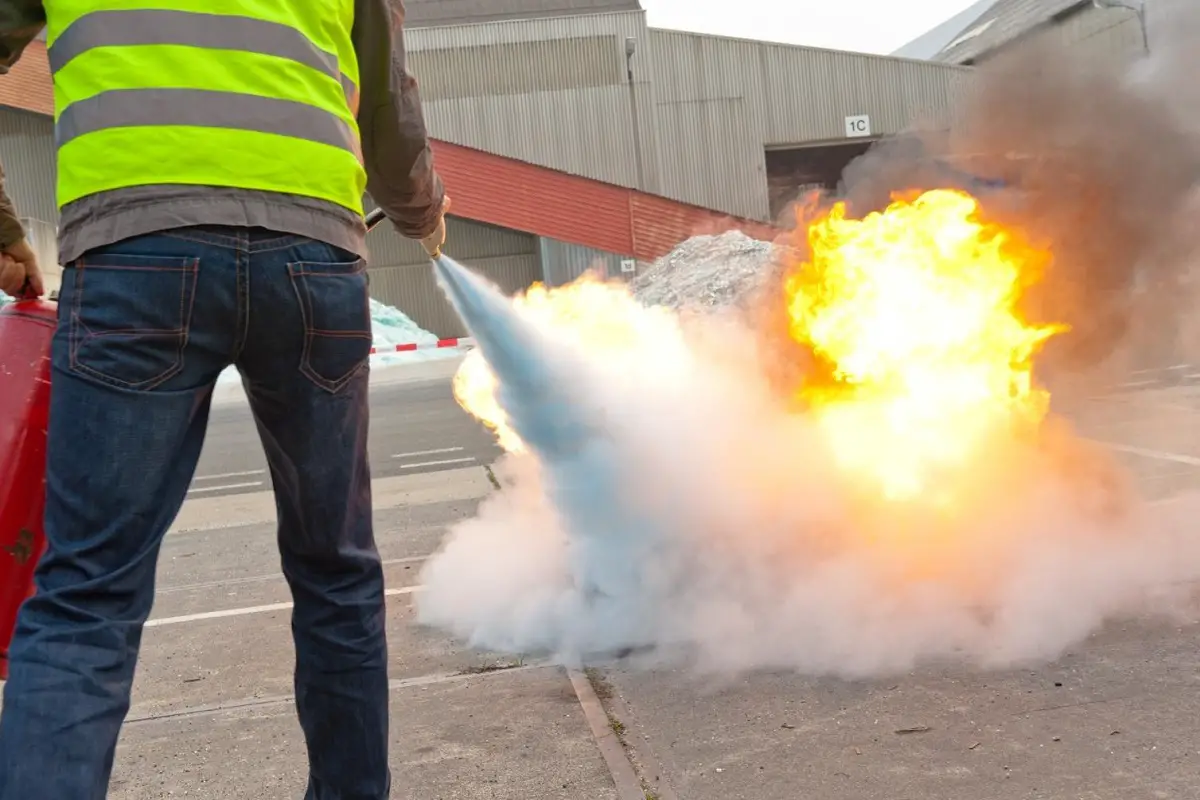Fire extinguishers are used for fire safety and prevention. They are typically used in buildings, vehicles, boats, aircraft, fire department vehicles and many other fire-related areas. So, what jobs may require the use of fire extinguishers?
Fire Extinguisher Inspector
Fire extinguisher inspectors are tasked with checking fire extinguishers for functionality, damage, and maintenence dates. Fire extinguisher inspectors also check the pressure level of fire extinguisher internal contents. If a fire extinguisher has been lacking in maintenence, or has no record of inspections, then it will need to be thoroughly checked and possible replaced.
Fire extinguishers must be operational at all times, or they need to be repaired or replaced. A fire extinguisher inspector performs a critical role in helping keep people and facilities safe from fire.
Firefighter
Firefighters have many fire suppressant tools they use to perform their critical jobs. These include fire hoses, axes, ladders, saws, and fire extinguishers of all types. Some fires are small enough not to require the use of a fire hose connected to a hydrant. In these situations, a fire extinguisher is most useful. Firefighters also deal with auto fires and need to grab a specialized fire extinguisher quickly to put out a fuel or oil fire. In essence, firefighters use a wide variety of fire suppression tools, with fire extinguishers being used often to put out fires.
Fire Safety Educator
Fire safety educators must have a wide breadth of knowledge with how to handle fire emergencies effectively so they can train their students on how to put out fires and evacutate safely. This includes understanding how to use a fire extinguisher. Most fires start out small and spread, so fire safety educators need to teach their pupils how to put out small fires before they get out of hand. This is where having experience with using fire extinguishers is a must for fire safety educators.

Fire Extinguisher Salesman
Fire extinguisher salesmen often work with major fire extinguisher manufacturers to communicate the benefits of their products and make sure they get distributed to customers. They will need to answer questions on fire extinguisher components, functioning, cost, maintenence, production and assembly, among others. Fire extinguisher salesman therefore need a detailed understanding of how fire extinguishers work, which usually means some experience in using one.
Fire Extinguisher Manufacturing Worker
Fire extinguisher manufacturers have facilities with mechanized assembly lines and machining processes. These need trained workers and technicians to operate so that the fire extinguishers are constructed without defects or missing parts. Fire extinguisher manufacturing workers will have a hands on understanding of how fire extinguishers are made from initial raw materials to final product.
Ultimately this means workers may hande many completed fire extinguishers and witness their testing before shipment. Some workers may have the job of repairing or servicing fire extinguishers that are recieved from customers.
Workshop Technician
In welding, woodworking, jewelry, shoe repair, and any other workshop that handles electrical components or tools with an open flame, employees will need to know how to use a fire extinguisher. There should be fire extinguishers stored with easy access on the premises. Small fires often start in workshops from ignited fuel sources such as rubbish or petroleum products. If not put out quickly using a fire extinguisher, an entire facility can go up in flames putting the safety of anyone within them or nearby at risk.
Electrician
Electricians handle electrical components and equipment that always pose a risk of sparking a fire. So, electricians must know how to use one effectively and have access to one in their facility or vehicle.
Welder
Welders often use tools that produce open flames (torches) and work nearby fuel sources. This job is highly susceptible to fire emergencies, so welders must know how to handle one. This means being trained in using fire extinguishers.
Truck Driver
Truck drivers face all sorts of dangers while driving their rigs. This includes auto accidents in the form of collisions or even a burning engine. While it is safest to move away from a vehicle when it is caught on fire, a truck driver may have the opporunity to put out a small fire before it spreads and destroys the vehicle. Trucks must have fire extinguishers attached to the vehicle and accessible by the driver when needed.
Security Officer
Security officers have the task of keeping a facility and its occupants safe by having eyes and ears ‘on the ground’ and warding off any dangers. They will need to know a facility inside and out, including entries and exits, stairways, lifts, closets, and storerooms. Security officers are often the person most able in the moment to handle a small fire when it breaks out. So, security officers must also know where and how to use fire extinguishers.
To Close
Fire extinguishers are meant as a safety device to be used rarely to prevent a fire from getting out of control. This list of occupations is not limited to those above, as any worker that faces the risk of fire should have access to and know how to use a fire extinguisher.
